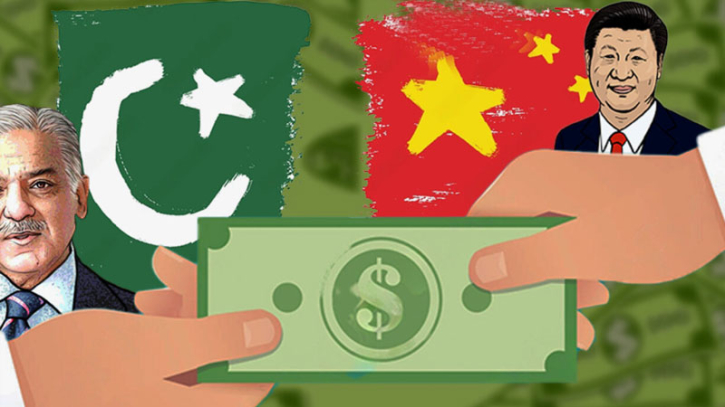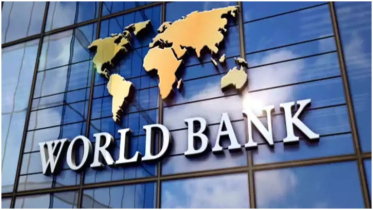Pakistan to request restructure of $15bn of Chinese loan

Muhammad Aurangzeb, the Pak finance minister will fly to Beijing this week as an envoy of Prime Minister Shehbaz Sharif to request the Chinese leadership to restructure the $15 billion energy debt. The government faces a challenging situation with multiple unresolved issues.
Highly placed sources told assured that the country's Planning Minister Ahsan Iqbal and Finance Minister Muhammad Aurangzeb would visit China this week. While Iqbal’s visit was pre-planned, the finance minister is being dispatched as the PM’s special messenger, they added. As the finance minister’s visit was not scheduled earlier, Pakistan’s ambassador to Beijing has been instructed to arrange meetings with Chinese authorities, said the sources.
A cabinet member, speaking to The Express Tribune on condition of anonymity, confirmed that the premier decided the issue of Chinese Independent Power Producers’ (IPP) debt should be immediately taken up for “re-profiling”. Iqbal is scheduled to attend the Global Development Initiative forum from July 11th to 13th.
According to the sources, the finance minister will carry a letter from the prime minister requesting debt restructuring.
The delegation would also formally convey Pakistan’s request to convert Chinese-imported coal-fired power plants to local coal. They said there is a proposal for the government to help Chinese investors arrange loans from local banks to convert these plants to indigenous coal. The sources added that Habib Bank Limited (HBL) is also engaged in the process.
China has set up 21 energy projects in Pakistan with a total cost of $21 billion, including about $5 billion in equity. Chinese investors obtained loans for these projects at an interest rate equal to the London Interbank Offered Rate (Libor) plus 4.5%. Against the remaining Chinese energy debt of over $15 billion, payments by 2040 would total $16.6 billion, according to government sources.
The proposal involves extending debt repayments from 10 to 15 years. This would reduce the outflow of foreign currency by about $550 million to $750 million per annum and decrease prices by Rs3 per unit. According to the existing IPP deals, the current power tariff structure requires debt servicing repayments during the first 10 years, leading to a significant burden on consumers who are paying the interest and principal of these loans through higher tariffs.
However, due to the extended repayment period, the country will also have to make an extra $1.3 billion payment to China, sources said. The cabinet member stated that Pakistan needs immediate fiscal space and some room for reducing prices, although the overall cost would increase in the long run.
The government’s economic challenges have multiplied, and it has not yet been able to conclude the International Monetary Fund (IMF) deal or lower electricity prices. To secure the IMF deal, the government imposed a record Rs1.7 trillion in additional taxes on Pakistan’s lower, middle, and upper-middle income groups. Electricity prices were also approved to increase by 14% to 51% to collect another Rs580 billion from residential and commercial consumers.
However, the Ministry of Finance has not been able to give a firm date for the staff-level agreement with the IMF. Finance Minister Muhammad Aurangzeb, a former banker, hopes the deal may be reached this month. Despite raising average base tariffs by around Rs18 per unit over the past two years, the Power Division told the PM on Saturday that as of end-May, the circular debt had again increased to Rs2.65 trillion—Rs345 billion higher than the level agreed with the IMF. The government has neither been able to give a firm date for the IMF staff-level deal nor reduce the cost of electricity and the circular debt. During the June 4th to 8th visit, PM Sharif requested President Xi Jinping to consider re-profiling the IPPs' debt and converting the imported-coal-fired power plants. Aurangzeb will seek approval for a mechanism to proceed, though Chinese authorities have repeatedly refused to restructure these deals.
Pakistani sources indicated that China might not grant further concessions until resolving their over Rs500 billion outstanding dues and ensuring security for Chinese nationals in Pakistan. IMF bailout packages have hindered Chinese energy deals due to restrictions on repayments.
If China agrees to debt restructuring, the repayment period will be extended to 2040, including interest payments. According to Pakistani authorities, repayment would be $600 million less this year and can be reduced to just $1.63 billion after restructuring. For 2025, debt repayments would decrease from $2.1 billion to $1.55 billion—a benefit of $580 million, sources said. However, the upfront relief would result in more repayments from 2036 to 2040.
In April, PM Sharif ordered all imported coal-fired power plants, including three Chinese plants, to convert to local coal to save $800 million annually and reduce consumer rates by Rs3 per unit. The finance and planning ministers will request Chinese approval for this project and propose financing with HBL.
At least five major imported coal-fired power plants with a total capacity of 5,940 megawatts are affected, including three Chinese-owned plants in Sahiwal, Port Qasim, and Hub, totalling 3,960 MW. Another 300 MW Chinese plant planned for Gwadar is on hold. The 1,320 MW Jamshoro plant is funded by the Asian Development Bank, and another 660 MW project is owned by the Lucky Group. An investment of about $480 million is needed to expand the Thar coal mine to supply these power plants. The government and K-Electric are discussing handing over the Jamshoro plant to the power utility company.
.png)




